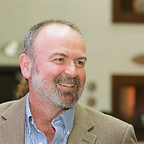A “Vaccine Passport” Set Me Free
I’ve recently returned from several weeks in France, attending the World Conservation Congress. Before departure, I applied to have my analog proof of vaccination — a CDC card — converted to a French pass sanitaire. I received a QR code which I then stored in a special mobile phone app, Tous AntiCovid. I was required to present the code when entering restaurants, checking in to hotels, boarding trains and of course at the conference center. Though I continued to wear a mask indoors, I could be confident that people around me either were vaccinated or had a recent negative test for COVID-19. The conference, with 7,500 participants from all around the world, and 25,000 local visitors from Marseille, met for a week. This resulted in only three known positive COVID test results: one each from a conference delegate, a local visitor and a local contractor.
Though it never happened (fortunately), my web-connected app would have alerted me to potential exposures as I traveled around France — I was always checking in by presenting my phone to be scanned. I was happy to contribute data to help track the virus, and to reassure others that I did not present a threat to their health.
The European Union is introducing a similar system across all 27 member nations. And Israel’s mobile app/QR system helped increase vaccination rates, particularly among younger people. These systems are not universally applauded, France has seen many protests against them, and England recently canceled plans “amid cries of tyranny.” There, as here, many rational, science-based responses to the SARS-CoV-2 pandemic have become politicized.
Opponents argue that “vaccine passports” are an infringement on personal freedom, and suggest conspiracies of government surveillance. In my view, anything that helps us know where and in whom the virus is likely to lurk is restoring our liberty to go about our normal lives — to shop, dine, go to the gym, support our local economies. By documenting and demonstrating that we are either vaccinated or tested when we enter an enclosed space with other people, we are giving everyone the freedom to live and breathe, and reducing the tremendous strain on emergency health care workers.
Here in the US, only a few states are haltingly experimenting with such systems, while others have banned them outright. With too little monitoring, COVID-19 continues, the virus has opportunity to mutate, and we all suffer the consequences. (The Delta variant has been the worst to date, but a future mutation could be more transmissible and/or cause more serious disease.) As fall turns to winter, I will not dine in restaurants, go to bars, or enter enclosed spaces where I cannot know who may be carrying the virus, and thus risk a breakthrough infection.
California and New York are among those states that have attempted to establish digital vaccination verification systems, and others, including my home state of Massachusetts are considering them. “Tyranny?” Not at all. We should remember that whenever we use a mobile phone or similar device to do more than make a phone call, we are providing data to someone, especially social media companies and marketers making a profit on knowledge of our personal movements and actions. We are not given much choice in the matter of our social media comments, internet searches, locations and purchasing decisions. Sharing of that data is imposed on us. Would it be such an imposition to extend that private profit data collection system to a public health emergency? Why not use the same technology to make us all safer from a terrible disease?
During the World Conservation Congress we heard lots of distressing news about how quickly our global environment is deteriorating, with record wildfires, droughts, storms and extinctions. We learned about the decreasing capacity of ecosystems to capture and store carbon, of dramatic changes in atmospheric and major ocean currents. We prepared for tough negotiations at the upcoming climate and biodiversity conferences. We had a lot to worry about but, thanks to vaccines, the pass sanitaire, face masks and other precautions, we could worry less about COVID-19.
